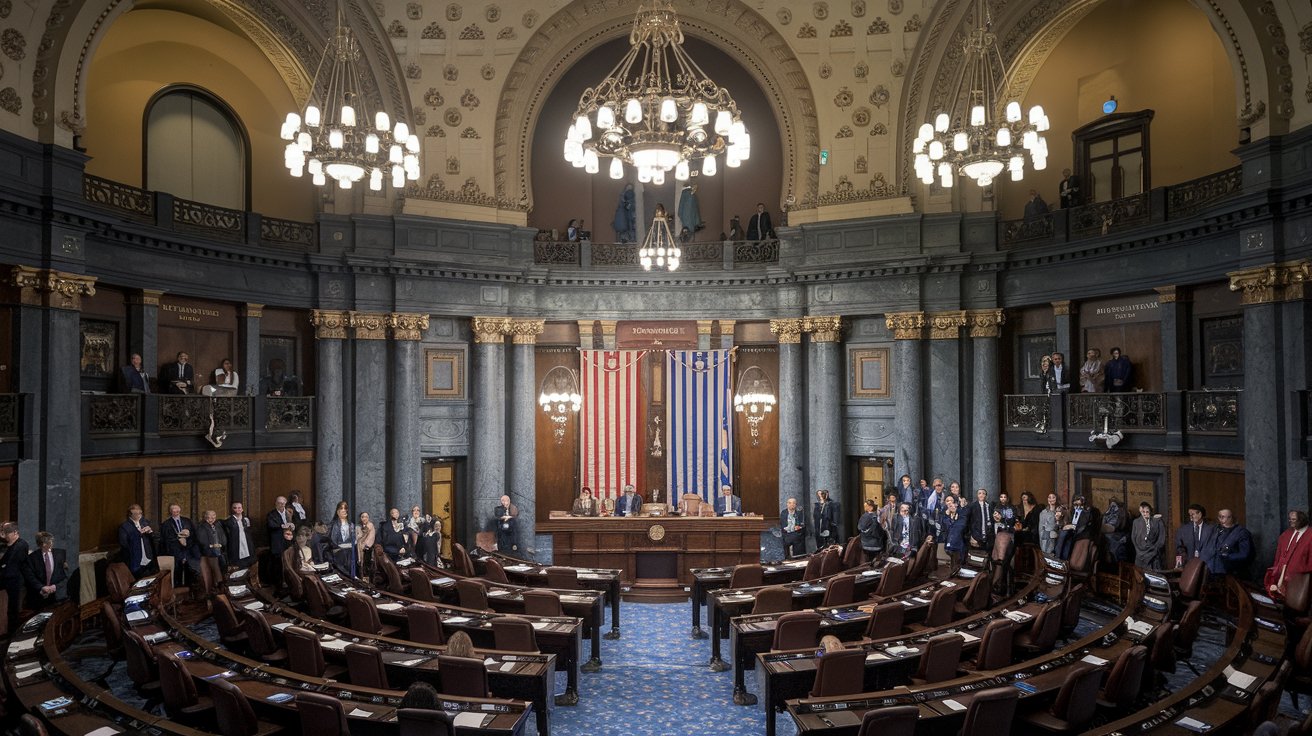U.S. Senate Passes Republican Border Security Bill Amidst Tax Cut Debates
In a significant legislative move, the U.S. Senate has passed a Republican-backed border security bill, fueling debates over immigration policy and fiscal priorities. The bill, approved by a narrow 52-48 vote, aims to bolster border security and enhance national defense, but notably excludes President Donald Trump’s proposed $4.5 trillion tax cuts.
Table of Contents
Understanding the Key Provisions of the Border Security Bill

The legislation introduces critical measures focusing on three main areas: border security enhancements, defense spending, and energy deregulation. These components are designed to strengthen national security and boost the country’s energy independence. Below is a detailed breakdown of each provision for a clearer understanding:
| Provision | Description | Impact |
|---|---|---|
| Border Security Enhancements | Allocates $85 billion annually over four years for border infrastructure, including physical barriers and advanced surveillance technologies. | Improves national security and reduces illegal border crossings. |
| Defense Spending | Significant investment in military infrastructure to address global security challenges. | Strengthens U.S. defense capabilities and readiness. |
| Energy Deregulation | Promotes fossil fuel development by easing regulatory restrictions. | Supports domestic energy production and economic growth. |
Why the Exclusion of Tax Cuts Has Sparked Controversy
While President Trump advocated for a comprehensive bill that includes tax cuts, the Senate’s decision to separate border security from fiscal reforms has led to a rift with the House of Representatives. The House is currently considering a broader bill that combines border security with the proposed tax cuts.
This decision highlights a strategic legislative maneuver by Senate Republicans to secure immediate victories on border security while postponing contentious fiscal debates. Senate Budget Committee Chairman Lindsey Graham suggested that this approach allows for a focused discussion on tax reforms at a later stage.
Democratic Opposition and Legislative Challenges Explained
Democratic senators have voiced strong opposition to the bill, arguing that it prioritizes defense and border spending at the expense of social programs. The opposition is based on the belief that the bill could redirect funds away from healthcare and social welfare programs, potentially impacting millions of Americans.
During a marathon overnight session, Democrats proposed amendments to protect healthcare programs and prevent tax breaks for the wealthy. However, most amendments were defeated along party lines, demonstrating the strong partisan divide.
The Implications and What Comes Next
The Senate’s passage of the border security bill without tax cuts reflects a strategic move by Republicans to advance President Trump’s agenda while avoiding contentious fiscal debates. As the House prepares to deliberate its version of the bill, which includes both border security and tax reforms, the potential for intra-party disputes remains high.
The outcome of these legislative efforts will not only influence the administration’s policy direction but also shape the broader political landscape as debates over immigration and fiscal responsibility intensify.





